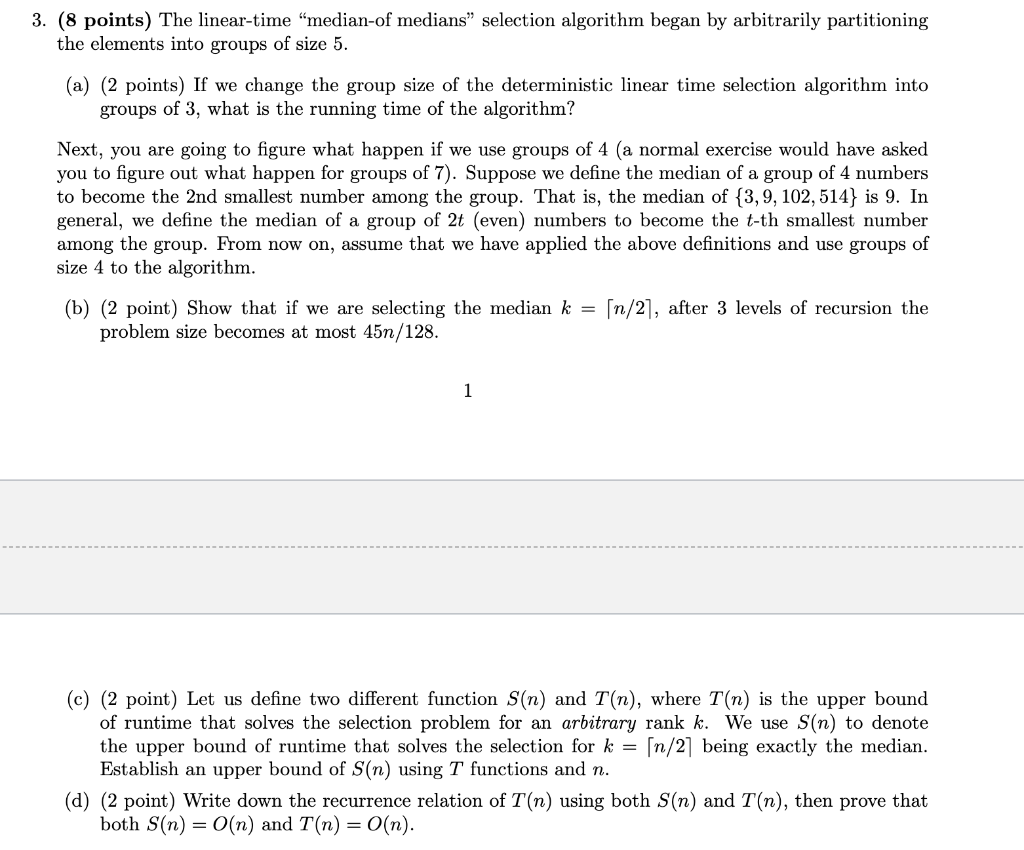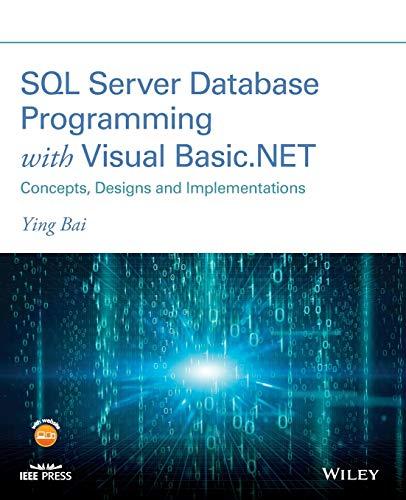Answered step by step
Verified Expert Solution
Question
1 Approved Answer
Specifically b, c, d. 3. (8 points) The linear-time median-of medians selection algorithm began by arbitrarily partitioning the elements into groups of size 5. (a)
 Specifically b, c, d.
Specifically b, c, d.
Step by Step Solution
There are 3 Steps involved in it
Step: 1

Get Instant Access to Expert-Tailored Solutions
See step-by-step solutions with expert insights and AI powered tools for academic success
Step: 2

Step: 3

Ace Your Homework with AI
Get the answers you need in no time with our AI-driven, step-by-step assistance
Get Started


